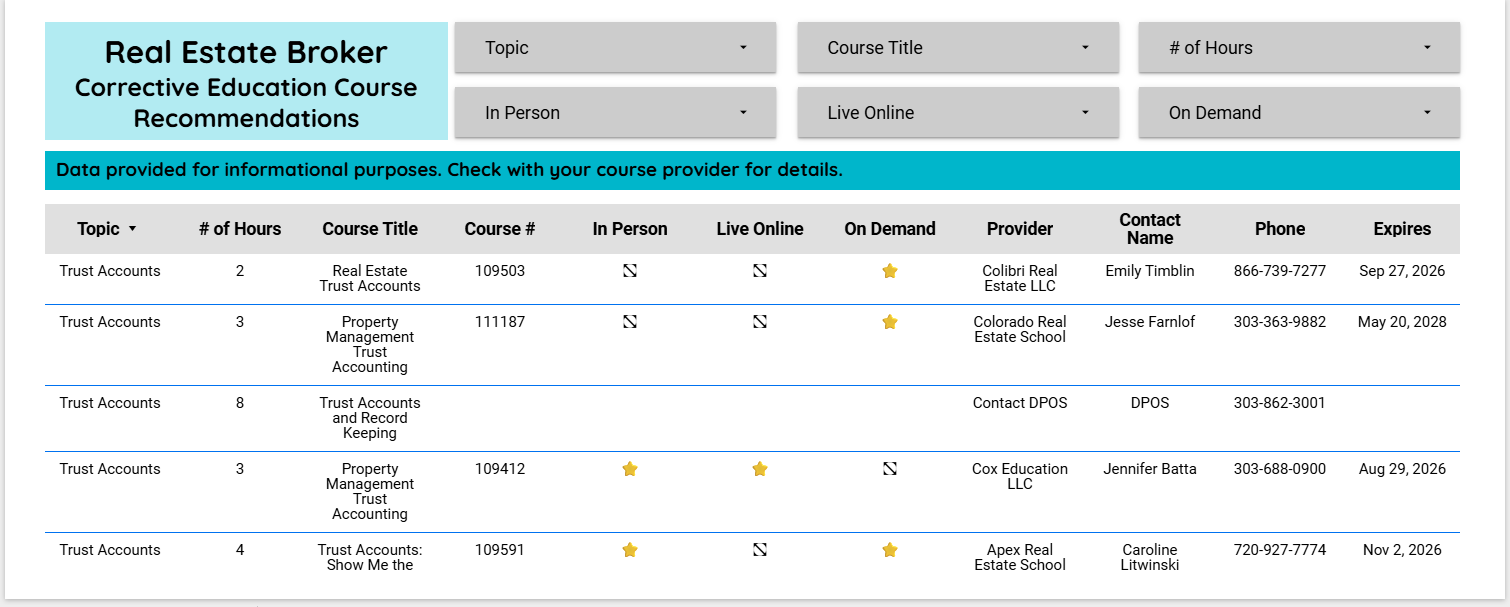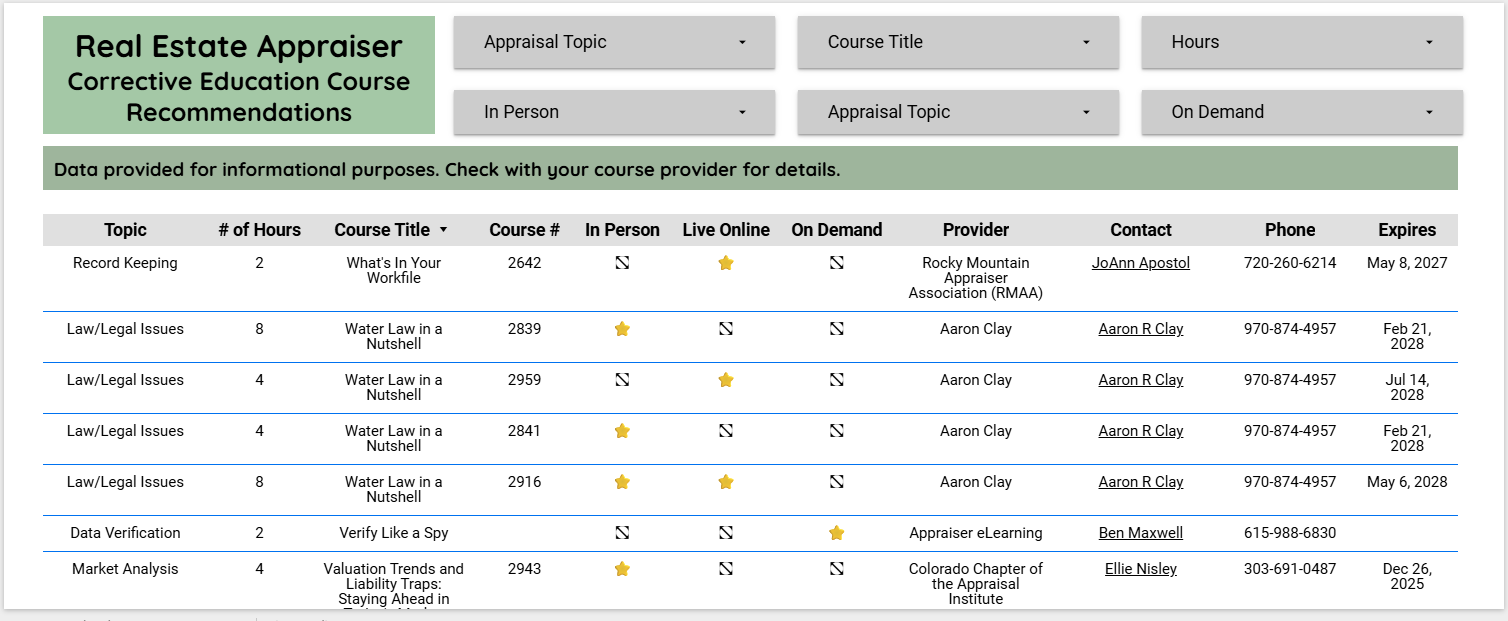Expedited Settlement Program (ESP) and Corrective Education
Overview
The Expedited Settlement Procedure Program (“ESP”) attempts to resolve disciplinary actions imposed by the Division’s Boards and Commission through settlement as an alternative to referring the cases to the Office of the Attorney General for a formal hearing. It is the intent of ESP to save the Division and the Respondent both time and money in resolving disciplinary actions by reducing the need for prolonged formal hearings while maintaining high standards of consumer protection and professional compliance.
In many cases, these settlements include Corrective Education, which serves as targeted coursework to address the specific nature of the violation or to remediate missed or incomplete training requirements. Rather than serving solely as a punitive measure, Corrective Education reinforces legal standards, corrects misunderstandings, and helps prevent future violations. Licensees who accept an ESP agreement must complete any required education within a designated timeframe as a condition of resolution. Corrective education is not optional. It is a condition of the settlement and failure to complete it can result in further disciplinary action.
If ESP Settlement Is Not Possible
In cases where the Respondent and the Board or Commission cannot agree on a stipulated agreement, the matter is referred to the Office of the Attorney General for preparation of charges and the hearing process. At this phase, the Office of the Attorney General will continue to explore the possibility of settlement with the Respondent, but if a stipulated agreement cannot be reached, the matter will proceed to an administrative hearing. Administrative hearings are held at the Office of Administrative Courts by an Administrative Law Judge.
At the hearing, the Board or Commission is represented by an Assistant Attorney General and both parties, the Board or Commission and the Respondent, may call witnesses to testify and provide evidence before the court. The hearing is conducted in accordance with the Administrative Procedure Act. At the conclusion of the hearing, the Administrative Law Judge issues an Initial Decision which contains the findings of fact, the conclusions of law, and recommended sanctions.
Estimated Timing
On average, ESP resolves 90% of the disciplinary cases within 60 days of a disciplinary decision being made. If a matter is referred to the Office of the Attorney General, matters usually cost the parties both significant additional time and expense.
Corrective Education Cannot Be Used for Continuing Education
Education completed to satisfy a disciplinary action, whether assigned through ESP or another enforcement process, does not count toward continuing education requirements for license renewal. Corrective education courses are remedial in nature and are designed to address specific violations, knowledge gaps, or education deficiencies. While they support professional accountability and growth, corrective education courses are separate from the ongoing education required to maintain an active license.
Click on the images or links below to be taken to the active course lists.
Broker Corrective
Education Courses

View the Broker Corrective Education Course List in another window
Appraisal Corrective Education Courses

View the Appraiser Corrective Education Course List in another window